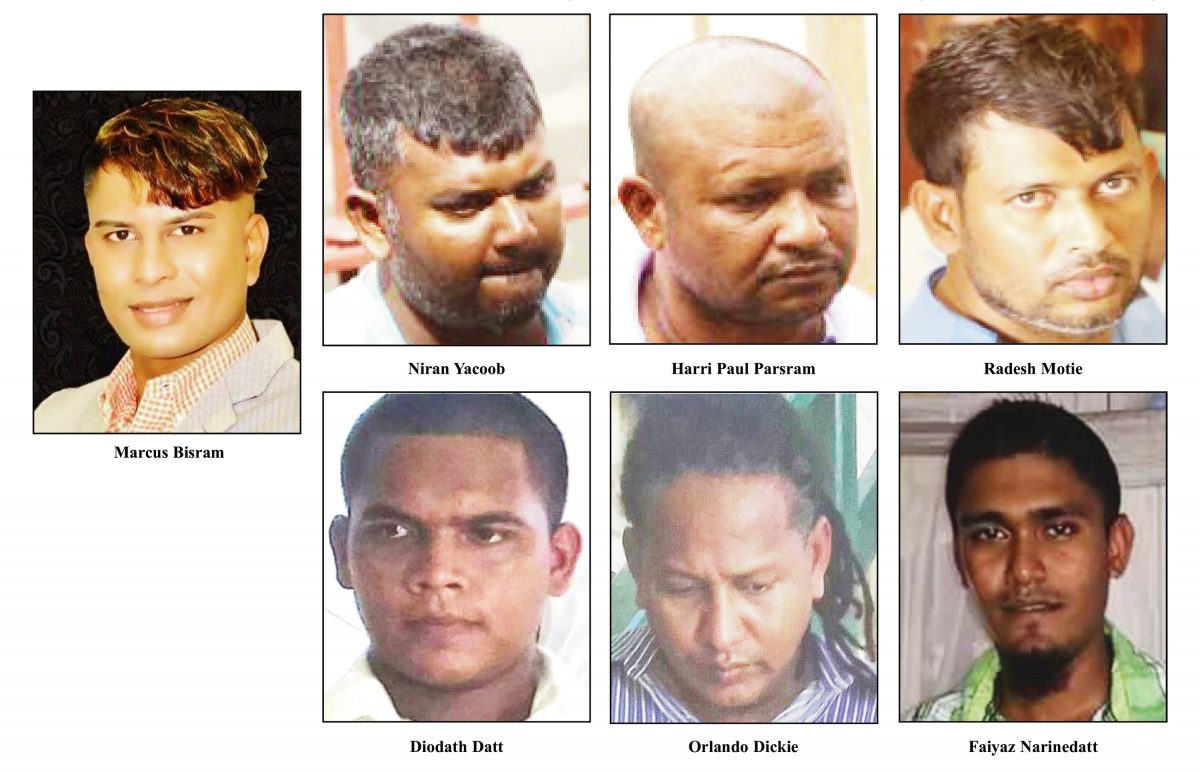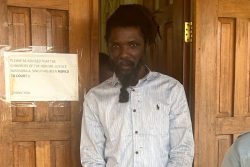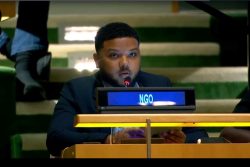The five men who are accused of murdering Number 70 Village, Corentyne carpenter Faiyaz Narinedatt back in 2016 were yesterday found guilty of the crime at the conclusion of their trial at the High Court in Berbice, where the main witness had testified to hearing the order to beat the man to death after he refused sexual advances allegedly made by Marcus Bisram.
The five accused are Orlando Dickie, Radesh Motie, Diodath Datt, Harri Paul Parsram, and Niran Yacoob.
Probation reports were ordered and the men will return to court on December 28 for sentencing.
Bisram was earlier this year cleared of a murder charge after an extensive court battle that was decided by the Caribbean Court of Justice (CCJ), which said he could only be prosecuted by way of “fresh evidence.”
Two weeks ago, a 12-member jury was empanelled at the High Court before Justice Navindra Singh to commence hearing evidence against the five accused.
The state, which is being represented by special prosecutor Latchmie Rahamat and state prosecutor Nafeeza Baig, called 26 witnesses to make its case.
Attorney Mursaline Bacchus represented Dickie, Motie, and Datt, while attorney Arud Gossai represented Parsram and Yacoob.
After Justice Singh summed up the matter yesterday morning, the members of the jury deliberated for several hours after which they returned with a unanimous guilty verdict for each of the accused.
Narinedatt was found lying lifeless on the Number 70 Village public road, Corentyne on November 1, 2016, with marks of violence about his body.
Investigators were initially treating the matter as a hit-and-run. However, relatives of Narinedatt pleaded with the police to further investigate the incident as they believed he was murdered, based on information provided to them.
A post-mortem examination revealed that he died from a fractured skull but had also sustained a fractured spine and other injuries about his body.
During summing up, the court heard that the main witness testified that he was present at Bisram’s party, where the five accused among others including the deceased, were also present.
The witness, who was a juvenile at the time, said that at that time Narinedatt had no injuries about his body.
He testified that Narinedatt was drinking after which he went to the washroom, where he claimed that Bisram attempted to touch his butt and genitals. The judge in summing up the witness’s evidence, said the man related that Narinedatt rebuffed Bisram, who kept on holding and touching him until he slapped him five times.
Judge Singh continued, “He (witness) testified that Marcus then walked through the house and told the five accused persons that Faiyaz just slap me ayo go beat am till he dead…. He testified that the five accused then went to Faiyaz and started chucking up Faiyaz and started to beat him and carry him out [to] the yard.”
The judge said the witness testified that they pulled out five pickets from the fence opposite Bisram’s house and “start to beat Faiyaz all over his body and head.”
According to the witness, at that stage the men beat Narinedatt and took him further up the street.
The judge then noted, that during cross-examination the witness testified that they pulled out one picket, which he claimed they shared to beat Narinedatt. “He said Faiyaz then run up the street about two lots but they catch him and bring him back then Faiyaz and the Number 1 accused (Dickie) fell into a drain and the Number 3 (Datt) and Number 4 (Parsram) pulled them out.”
Furthermore, the witness testified that the Number 2 accused (Motie) then brought his car, and Datt and Parsram put Narinedatt in the trunk of that car “and this time Faiyaz was not moving.”
Additionally, the judge highlighted that the witness’s statement in the magistrate’s court differs from the evidence given in the High Court. However, the witness claimed, that he was afraid to tell investigators what he saw transpire since the police would often also attend Bisram’s parties.
The witness also claimed that a Berbice attorney advised him to stick to the statement he had given to the police of not knowing anything hence he said the same in the magistrate’s court.
Meanwhile, Justice Singh stressed, that all of the accused persons denied being involved in any incident whereby the injuries were and could have been inflicted on Narinedatt.
In March, the CCJ’s ruling concluded a two-year-legal battle waged by Bisram against the Director of Public Prosecutions (DPP) directing that he be committed to stand trial for the murder.
Following a Preliminary Inquiry at which he was discharged by a magistrate in March of 2020, Bisram was rearrested on direction of the DPP, who invoked her powers under Section 72 of the Criminal Law (Procedure) Act, ordering that he be committed to face trial before a judge and jury.
High Court judge Simone Morris-Ramlall would, however, later quash the committal order based on an application by his lawyers.
DPP Shalimar Ali-Hack, however, appealed that ruling, which the Court of Appeal last year overturned, paving the way for Bisram to be taken back into custody to await trial.
He, however, successfully petitioned the Caribbean Court of Justice for a stay of the judgment of the local appellate court pending its final ruling as he contended that the DPP’s directive was unlawful.









